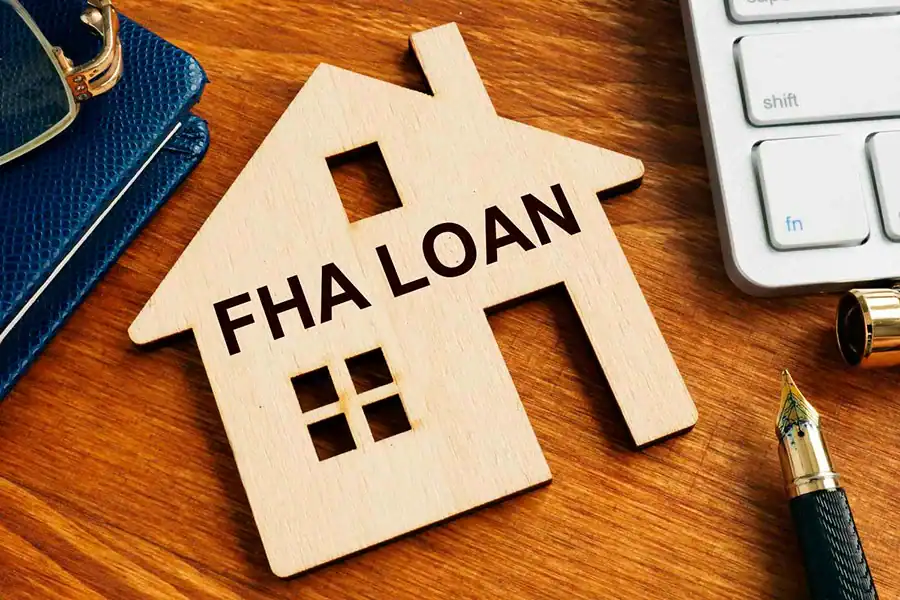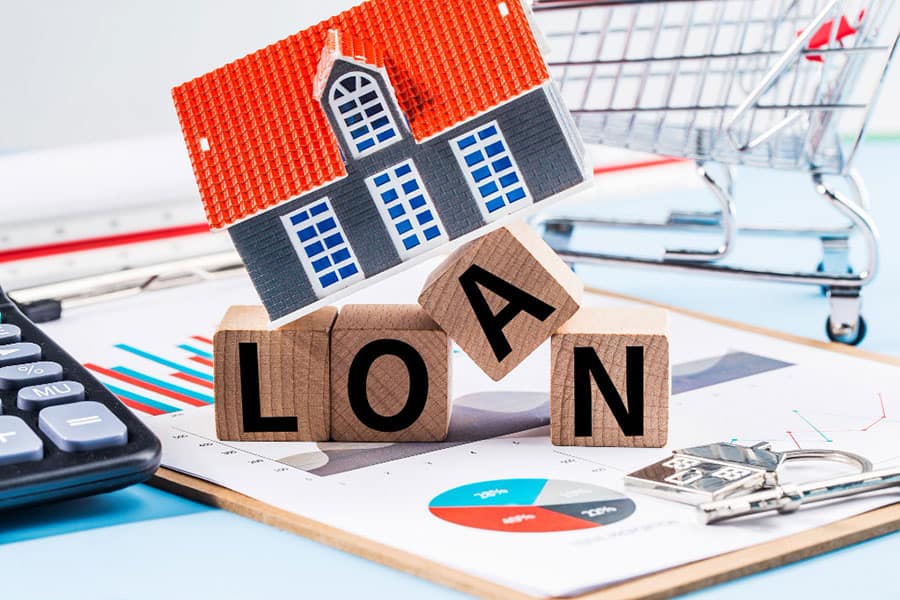FHA vs Conventional Mortgage: Which is Best for Tampa Buyers?
If you’re buying a home in Tampa, choosing between an FHA or conventional mortgage can feel overwhelming. Both funding options are popular among Tampa buyers, and the best choice depends on your credit score, financial goals, and down payment savings. Explore Tampa conventional loan options to see how this type of mortgage could fit your needs, or keep reading to compare both loans side by side.

What is an FHA Loan?
An FHA loan is a government-insured mortgage backed by the Federal Housing Administration. It’s designed to help low-to-moderate-income buyers, especially first-time homebuyers, get into a home with a smaller down payment and more lenient credit requirements.
In Tampa’s competitive housing market, FHA loans provide an accessible path to homeownership for consumers who might not qualify for conventional financing. Whether you're purchasing in Seminole Heights, Temple Terrace, or East Tampa, this loan can help make homeownership a reality even if you’re still building your credit or savings.
FHA Loan Pros for Tampa Buyers
- Lower down payments (3.5%+): FHA loans allow qualified Tampa buyers to purchase a home with as little as 3.5% down, making it easier to buy sooner. You can also use gift cash from family members to lower the down payment, prepaid expenses, and closing costs.
- Lenient credit score requirements (500–580+): Buyers with credit scores as low as 580 can qualify with 3.5% down, and even those with scores between 500–579 may be eligible with a 10% down payment. This flexibility is ideal for buyers rebuilding their credit history or facing past credit card delinquencies or high balances.
- Easier qualification for first-time buyers: FHA loans are designed with first-time buyers in mind, offering more forgiving debt-to-income ratios and underwriting standards. This can be a huge help if you're balancing student loans or other debt while trying to buy your first home in Tampa.
FHA Loan Cons for Tampa Buyers
- Upfront and annual MIP required: FHA home loans come with a Mortgage Insurance Premium (MIP) that includes an upfront fee (usually 1.75% of the loan amount) and annual premiums paid monthly. This acts like an insurance policy for lenders in case of default, and it's an added cost buyers must factor into their monthly budget.
- MIP often lasts the life of the loan: Unless you refinance into a conventional loan later, the monthly MIP typically remains for the full term.
- Stricter appraisal standards: FHA loans require a more detailed appraisal and home inspection standards. If the home’s market value is overinflated or the property needs repairs, it could delay or derail your loan approval.
Learn more about FHA loans in Tampa to see if this option fits your needs.

What is a Conventional Loan?
A conventional home loan is a mortgage that’s not backed by the United States government agency like the FHA or VA loans. Instead, it’s funded by private lenders and typically follows guidelines set by Fannie Mae and Freddie Mac. Nonetheless, this loan option still complies with federal and state lending laws to protect consumers. Conventional loans include both conforming loans (within local limits set by the Federal Housing Finance Agency) and jumbo mortgages, which exceed those limits.
In Tampa, conventional loans are a popular choice for buyers with solid credit and stable employment history. They offer more flexibility in property types and often come with lower long-term costs, especially if you can put 20% down. Whether you're eyeing a modern condo in Channelside or a family home in Westchase, a conventional loan can provide more purchasing power and competitive terms.
Conventional Loan Pros for Tampa Buyers
- Flexible loan amounts and terms: Conventional loans offer a wide range of loan sizes and repayment options. In high-demand Tampa neighborhoods like South Tampa or Beach Park, this flexibility helps buyers stay competitive.
- PMI can be removed at 20% equity: If you put less than 20% down, you’ll pay private mortgage insurance (PMI), but it doesn’t have to last forever. Once you've built up 20% home equity, you can request to cancel PMI, lowering your monthly payments over time.
- No upfront mortgage insurance: Unlike FHA mortgage loans, conventional mortgages don’t require an upfront insurance premium. This can reduce your closing costs and make your home purchase more affordable from day one.
Conventional Loan Cons for Tampa Buyers
- Higher credit score requirements (620+): Conventional loans typically require a minimum credit score of 620. To get the best rates, Tampa buyers often need a score of 700 or higher, making this option harder to qualify for if you’re still building credit.
- Higher down payment needed (5%–20%): While some conventional loans allow as little as 3% down, most lenders prefer 5% or more.
- PMI required if under 20% down: If your down payment is below 20%, you’ll be required to pay PMI to offset the lender’s credit risk. This added layer of protection helps lenders reduce the chance of default in case a borrower is unable to repay the loan.
Check your conventional loan eligibility in Tampa to see if this option fits your home buying goals.
FHA vs Conventional Loan Comparison Table
| Feature | FHA Loan | Conventional Loan |
| Min Credit Score | 500-580 | 620+ |
| Min Down Payment | 3.5% | 3-5% |
| Mortgage Insurance | MIP for life (unless refinanced) | PMI under 20% down, removable |
| Loan Limits (2025 Hillsborough) | ~$517,500 | ~$806,500 |
| Eligible Properties | Primary residences only | Primary, second home, investment |
Tip: Don’t forget to factor in tax implications when comparing loan options especially if you plan to deduct mortgage interest or real estate taxes.
In today’s changing economy, understanding the differences between FHA and conventional loans can help you make a more confident, informed home financing decision. See our FHA vs Conventional Comparison Chart for detailed side-by-side features and updated loan requirements. Additionally, you can use our mortgage calculator to estimate how Conventional or FHA loans compare based on your finances.
Which Home Loan is Better for Tampa Homebuyers?
Choosing between an FHA and a conventional loan depends on your overall personal finance situation, credit score, and homeownership goals. Here’s a quick guide to help you decide:
When an FHA Loan is Better:
- You have a lower credit score (500–579) and can put at least 10% down
- Your credit score is 580+ but you want to minimize your down payment (as low as 3.5%)
- You’re a first-time homebuyer needing more flexible qualification requirements
- You don’t mind paying mortgage insurance for a longer period
When a Conventional Loan is Better:
- Your credit score is 620 or higher
- You can put 20% down to avoid PMI and lower monthly payments
- You want more flexibility in property types (primary, second home, or investment)
- You’re looking for higher loan limits in areas like Tampa’s growing neighborhoods
Tip for Tampa Buyers:
When comparing loan offers, don’t just focus on the interest rate—look at the annual percentage rate (APR) as well. The APR reflects the total cost of the loan, including fees and other charges, giving you a clearer picture of what you’ll actually pay over time.
Credit Score vs. Down Payment Guide
| Credit Score Range | Typical Minimum Down Payment | Eligible for Best Rates? |
| 500 – 579 | 10% (FHA only) | ❌ Not eligible |
| 580 – 619 | 3.5% – 5% | ❌ Not eligible |
| 620 – 679 | 3% – 5% | ⚠️ Possibly with higher rates |
| 680 – 739 | 5% or more | ✅ Often eligible |
| 740+ | 10% or more | ✅ Strongly eligible |
This chart gives you a quick sense of where you may stand as a borrower and what options might be best based on your credit profile.
Check if you qualify for a conventional loan in Tampa to see if this option fits your home buying goals.
Frequently Asked Questions
Is it better to go with an FHA or a conventional loan?
It depends on your financial situation. FHA insured loans are often better for Tampa buyers with lower credit scores or limited down payment funds, while conventional loans are ideal if you have strong credit and want to avoid mortgage insurance by putting 20% down.
Mortgage rates fluctuate based on economic conditions and policy decisions by the Federal Reserve. FHA loans typically offer slightly lower base rates than conventional loans. Buyers can also reduce their interest rate further by purchasing discount points. However, you’ll still need to account for the added cost of mortgage insurance. In the end, the best choice depends on your goals and your target neighborhoods in Tampa.
Why do realtors prefer conventional over FHA?
Many Tampa realtors prefer conventional loans because they often close faster, have fewer strict appraisal requirements, and show sellers that the buyer is financially strong. This is especially important in competitive Tampa areas like Carrollwood, Westchase, and South Tampa, where multiple offers are common.
Can I get a home equity loan with an FHA mortgage?
FHA loans don’t offer traditional home equity loans or HELOCs. If you want to borrow against your home’s value, you’ll typically need to refinance into a conventional loan first.
What is the downside of an FHA loan?
The main downsides of an FHA loan for Tampa buyers are:
- Mortgage insurance premium (MIP) is required upfront and annually, often for the life of the loan.
- Stricter property appraisal standards, which can make FHA offers less competitive in hot Tampa neighborhoods.
- Lower loan limits compared to conventional loans, which can impact buyers shopping in higher-priced areas like South Tampa or Beach Park.
What credit score is needed for a conventional loan in Florida?
To qualify for a conventional loan in Florida, including the Tampa market, you generally need a minimum credit score of 620. However, Tampa buyers with scores of 700 or higher often receive better interest rates and lower PMI costs, helping them save on monthly payments. Lenders will also evaluate your gross income to ensure your debt-to-income ratio stays within acceptable limits usually under 45% for most conventional loans.
How Ebenezer Mortgage Solutions Can Help
At Ebenezer Mortgage Solutions, we specialize in helping Tampa buyers choose the right mortgage with confidence. Whether you're torn between an FHA or conventional loan, our team will walk you through every option, clearly, patiently, and with your goals in mind.
Unlike a bank or credit union, which can only offer their own limited set of loan products, our team can shop across multiple lenders to find the most competitive rates and terms for your unique situation. Rather than working with just one loan officer at a single institution, you’ll have access to a wider range of loan programs and more flexibility through us.
As a trusted Tampa mortgage broker, we provide:
- Personalized loan comparisons tailored to your credit, budget, and homeownership plans
- Fast pre-approvals to help you compete in Tampa’s hot housing market
- Expert guidance from first showing to final closing
- Connections with local real estate agents to make your homebuying journey smoother
⭐ 2,000+ Happy Clients | 📍 Tampa-Based | 🕐 Fast Pre-Approvals (99.6% Process Efficiency)
Ready to Choose the Best Loan for Your Tampa Home?
Schedule your free mortgage consultation today to compare FHA and conventional loan options with confidence. Our team will guide you through every step.
📞 Call Ebenezer Mortgage Solutions at (813) 284-4027
📍 See our Google reviews and get directions
Reviewed by Yuleisy Gonzalez Alvarez, NMLS #1507766
CEO & Mortgage Loan Originator at Ebenezer Mortgage Solutions
Yuleisy has over a decade of experience in mortgage lending, including roles in underwriting, processing, and executive leadership. As the founder of Ebenezer Mortgage Solutions in Tampa, FL, she has helped over 2,000 families secure home financing.




